|
|
|
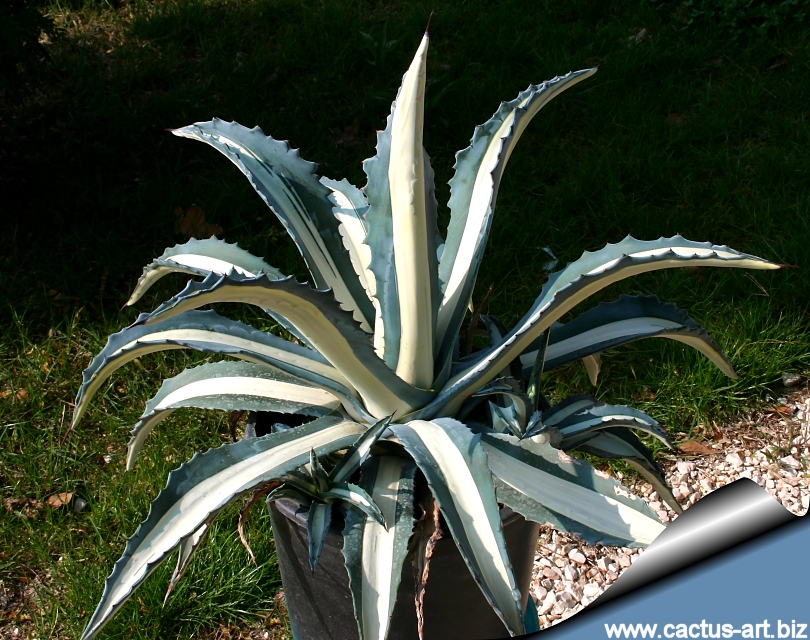
Agave americana 'Mediopicta Alba' is one of the prettiest and most
sought after variegated succulents in existence. It is a living
sculpture with very dramatic leaves, the juxtaposition of the solid
creamy white bands down the centre with the powder blue of margins in a
neat rosette looks right to the eye.
|
|
Description:
Solitary or slowly
clumping succulent
rosette that will grow to a height of 70-90(-120)
cm.
The var. medio-picta 'Alba' is a medium to smaller growing
form of Agave americana.
Leaves: Short, lanceolate,
narrowed above the thickened base, that arch slightly above the middle
of the lamina and this is a characteristic feature of this species. The
leaves of this cultivar are pleasantly
variegated with a greyish-white to creamy-white central broad band
down the centre of each leaf, with grey-blue sharp-spined edges and a
long terminal spine.
Flowers: Inflorescence up to 5 m tall (or more) slender,
straight, long oval in outline and rather open. The individual flowers
are yellow-green and attract hummingbirds. Flower spikes are also
variegated.
Blooming season: Summer, however in warmer climates the Century
Plant doesn't bloom until it is a decade old and not a century!
(up to 35 years or more in cool climates) and the plant dies after
flowering.
|
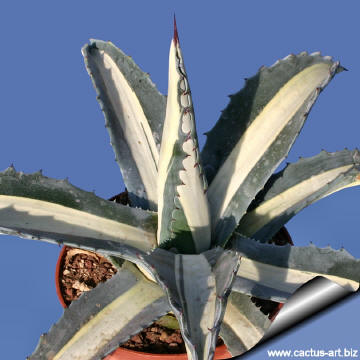 |
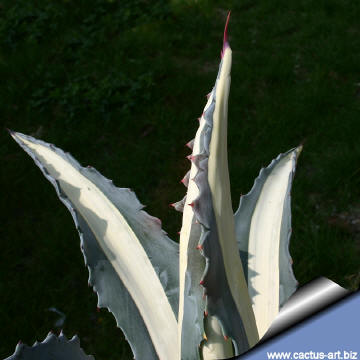 |
|
|
|
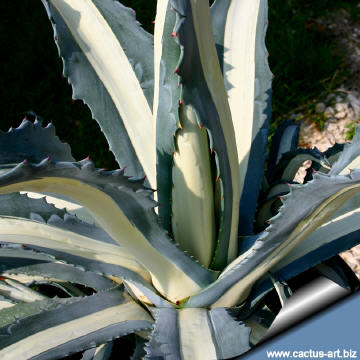 |
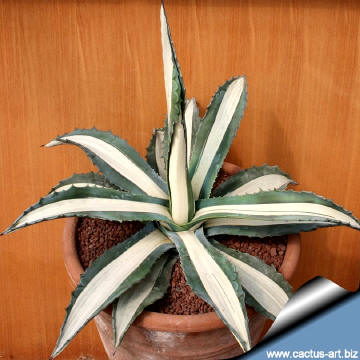 |
|
This is a great plant as it is
very attractive and remains smaller than most of the other variegated
Agave americana varieties. It is among the most architectural and
beautiful of succulents.
|
|
|
|


Advertising
|
|
|
|
|
Family: Agavaceae
Scientific Name: Agave americana 'Medio picta Alba'
Synonyms:
- Agave ingens var. picta,
- Agave zonata,
- Agave variegata,
- Agave subzonata,
- Agave picta
Common English Names include:
White-Striped Century Plant
|
|
|
|
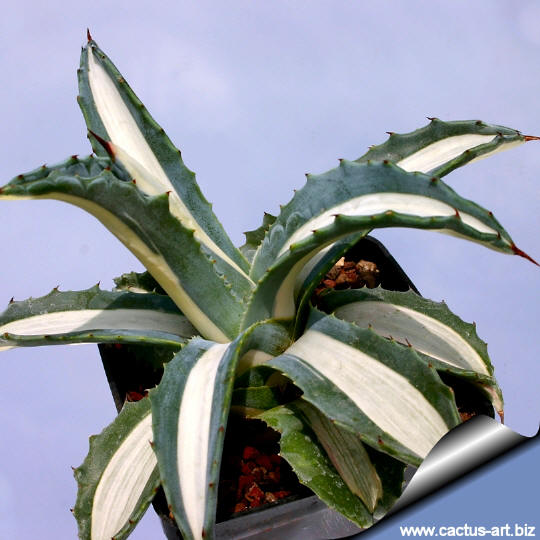
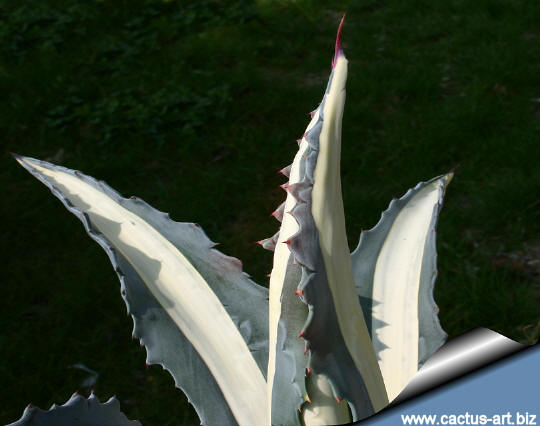
|
|
Cultivation: This is a very
popular cultivar but it is relatively slow to grow and propagate, it
tends to do less well than the standard
blue-grey species plant, hence the price. They do well in full sun or a
lightly shaded area.
In winter watering this plant can be done once every 1-2 months. There
is no need to mist the leaves. Agave americana is theoretically
hardy to -9° C , particularly when dry ,but
this
cultivar is more
tender, and it is best to avoid severe
freezing temperatures. Use extreme care when working around or
trimming any Agave. Not only are the spines wicked and cause a painful
swelling if one is poked, but the sap is somehow caustic.
Propagation: Exclusively by
suckers Remove the basal suckers (if available) in spring or
summer and let the cuttings dry for a few days before inserting in
compost.
Use: These striking plants are wonderful when used for accent, or
simply to provide some all year round foliage colour.
They are often used in a
pot as patio plants, and make an eye-catching statement.
Along with
other evergreen plants in pots, they can be moved around to change the
scenery, or positioned to give more shelter.
This is a large dramatic plant that enjoy plenty of room, preferably
situated away from traffic. Good on a hillside. This is a very pretty
Agave. Photo of conspecific taxa, varieties, forms and
cultivars of
Agave americana.
|
|